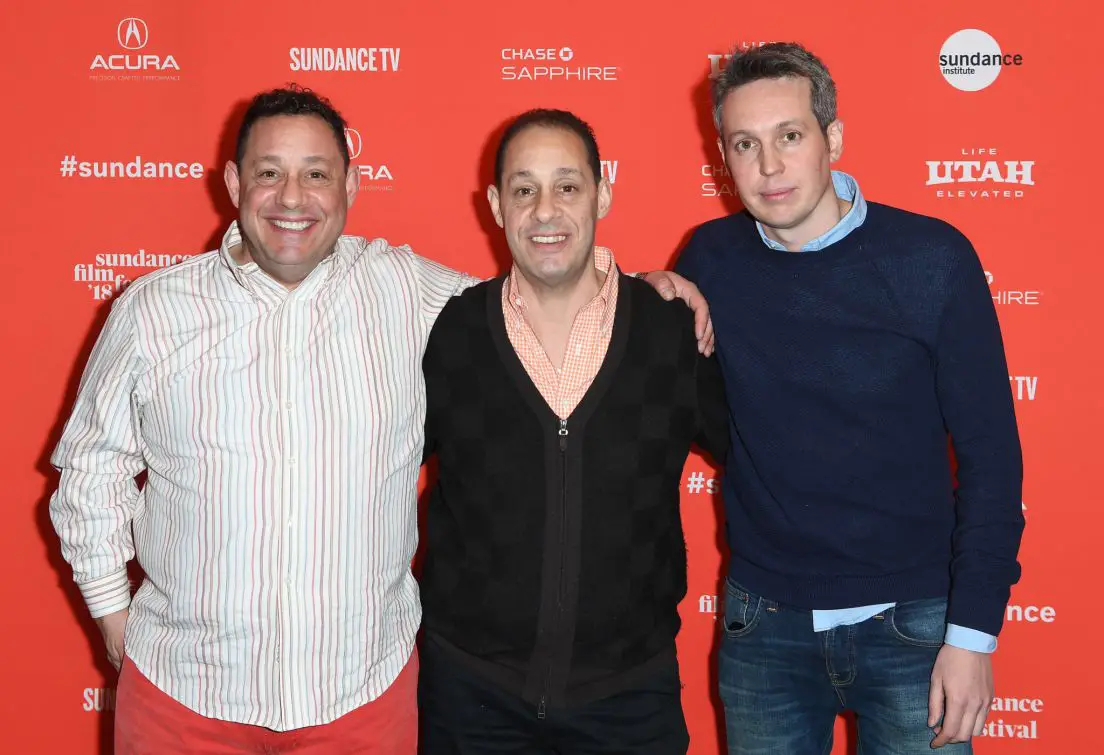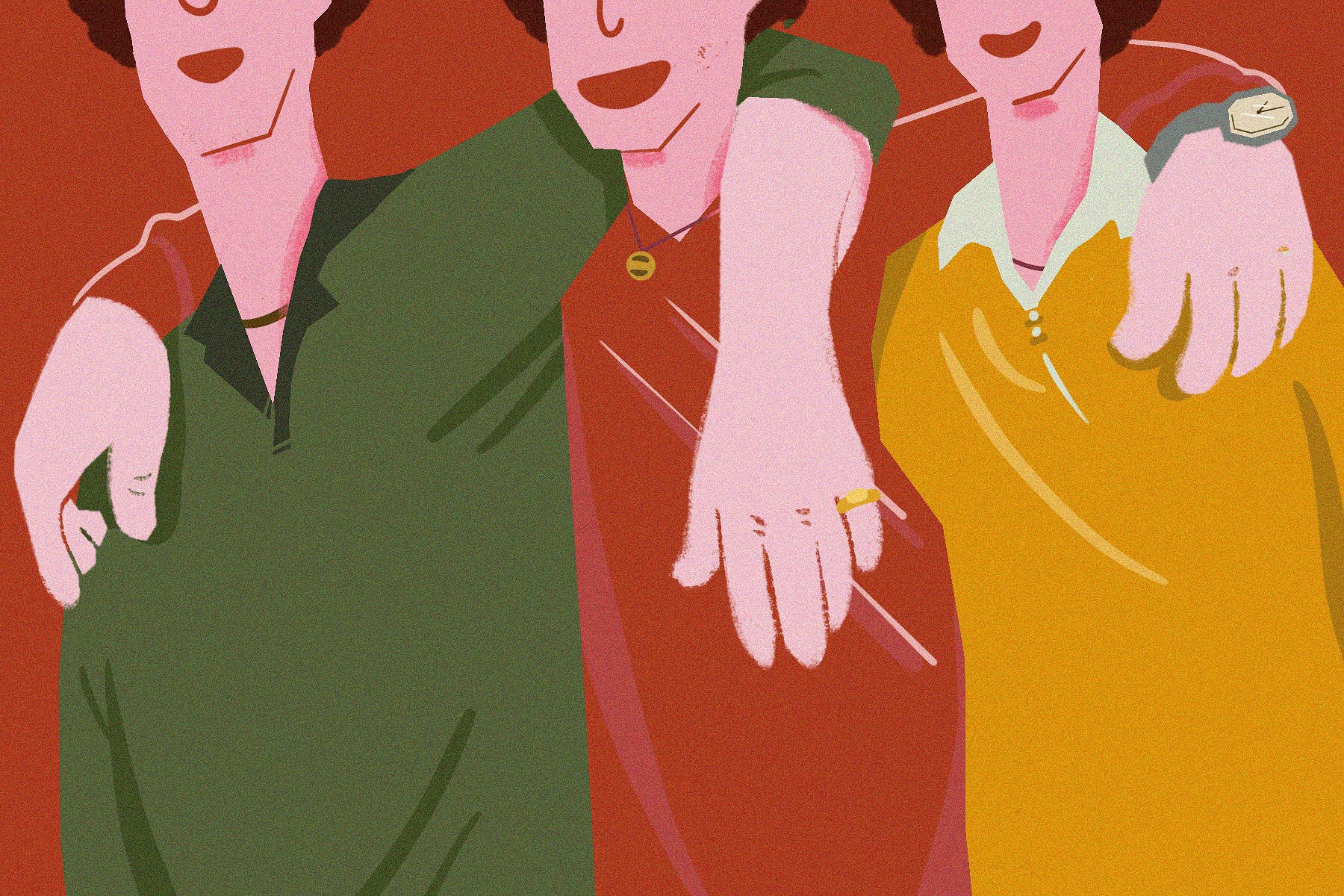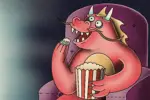Imagine walking onto your college campus on the first day of your freshman year. Your mind races with questions. Where is my dorm? Which classes am I taking again? Will I make friends? The campus is full of strange people and strange buildings, but you try to keep your head down and follow the map that your mother carefully packed for you.
But then, people start waving at you. Hugging you. Saying they are so happy you’re back. You don’t recognize any of them, but they clearly recognize you. It seems impossible, but for Robert Shafran, this began the “Twilight Zone”-esque saga detailed in the new documentary “Three Identical Strangers,” directed by Tim Wardle.
When he wandered onto campus as a 19-year-old in 1980, it didn’t take Shafran long to figure out that he had an identical twin brother named Eddy Galland he had never met. Aided by one of Galland’s old friends, he jumped in a car and drove to meet this mysterious twin. The press reported on the story and, a few months later, a third twin brother named David Kellman contacted Shafran and Galland.
They had all been born at the same hospital and been adopted out to separate families by the Louise Wise Services adoption agency in New York. Beside the eerie physical resemblance, all three had similar mannerisms, interests and senses of humor, and they quickly became inseparable.
At this point, the story is already insane. Watching it, I thought, “Wow, identical triplets who knew nothing about each other managed to reunite, that is crazy. Well, the credits must be rolling soon.” But as the screen showed archival footage of the triplets making the rounds of ‘80s talk shows, moving into an apartment together and partying in Manhattan, enjoying their happy ending, I checked my watch. It was less than 30 minutes in.
After things went well for a time — they became tabloid celebrities, appeared in movies and opened a restaurant — the brothers and their adoptive families began to wonder why they were separated from each other in the first place. The backstory that emerges becomes the real focus of the documentary, and many stunning twists and turns reveal the story to be stranger, and far more sinister, than its feel-good premise initially suggested.
“Three Identical Strangers” should be watched with as little prior information as possible, and director Wardle crafts the narrative expertly, getting gasps of bewilderment out of his audiences at least once every ten minutes. Ideally, you should go watch the movie now — or proceed with caution through the minor spoilers that follow. You’ve been warned.

The three sets of adoptive parents were rightfully angered when they found out that they had not been informed of their sons’ identical brothers. In 1980, they tried to complain to Louise Wise Services, the most prestigious adoption agency for Jewish children in New York, but got nowhere. It remained a question until 1995, when the triplets found that they had been deliberately separated in a psychological experiment conducted by Dr. Peter Neubauer.
A noted child psychoanalyst in the 1960s, Neubauer chose to work with the adoption agency to split up the brothers, carefully select their adoptive families (one blue-collar, one middle class and one upper class) and periodically visit them for observation. Louise Wise Services told the boys’ parents that they were doing a study of adopted children, and researchers regularly came to the houses to test question the young boys and treat them like guinea pigs in their study of parenting styles and child development.
The Neubauer study looks unethical at first, but as the grown-up brothers and their families share their stories in emotional interviews, it begins to seem utterly destructive. When they discover that they were not the only subjects of the study, they realize that there might be other sets of siblings who remain unaware of each other. The results of Neubauer’s study were never published (he broke the study off in 1980, the same year the triplets met each other, for supposedly being “too expensive”), and the files on it will remain sealed at Yale University until 2066.
Wardle spent five years making “Three Identical Strangers,” and his journalistic doggedness is very admirable. He managed to make a documentary on this subject after multiple filmmakers had attempted to cover it and hit dead ends, and though the film leaves some questions hanging, it remains an incredible work of investigative journalism.
His patience and perseverance also paid off in the honesty that Shafran and Kellman, the two living brothers, show in their interviews. They are emotionally real, unexpectedly so considering they have told this story hundreds of times, and the interviews with their wives, childhood friends and parents show the same openness. The filmmakers took the time to gain the trust of their subjects and handled this easy-to-sensationalize story with care.
Further, Wardle manages to balance the past-tense storytelling of the first section of the film, using reenactments and archival footage, with the tense investigatory interviews of the second. The film brings up questions of nature versus nurture, the ethics of science and the inherent messiness of studying human behavior, highlighting a dark chapter of scientific history while keeping its human subjects firmly centered.
“Three Identical Strangers” feels, at various times, like a comedy, a thriller and a tragedy. Both thought-provoking and disturbing, this masterwork in documentary filmmaking proves that truth can be stranger than fiction and that sensational stories can be presented with humanity and heart. See it in a theater if you can — and get ready to gasp.

















